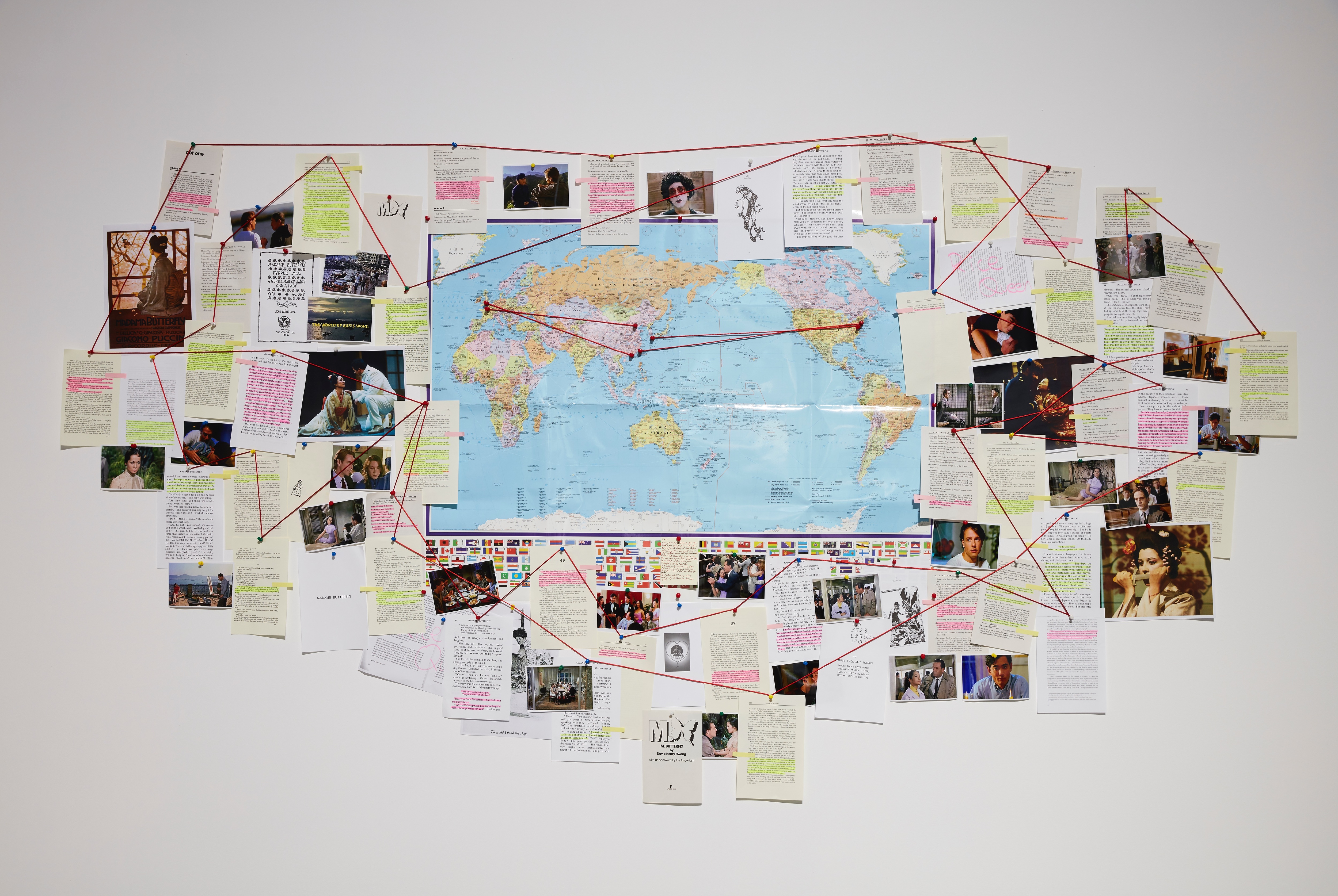






20’
2016
Book texts, photos, world map, red line, pins, and cassette tape
Stereo sound
文本,照片,世界地圖,紅線,圖釘和盒式錄音磁帶機錄音
二十分鐘
“Song to Daphnis” has recorded a personal narrated story of the artist, and the fictional story is based on the artist’s personal experience and stories from serval novellas, including sections from John Luther Long’s Madame Butterfly, Richard Mason’s The World of Suzie Wong, and John F. Rooney’s The Rice Queen Spy. These novellas seems unrelated on the surface, yet they are all shared a something in common — interracial relationship. I investigate the context of novellas and movies, to reconstruct how interracial and homosexual love being represented in visual and words. Otherwise, I as the artist, present my story through my own voice, in order to deconstruct the Eurocentric exoticism — outside the Western world, especially the objectified East Asia.
Underneath my voice, music from the Madame Butterfly is being played as the background music throughout the narrated story.
The Chinese title “zibuyu” (What the Master Would Not Discuss) is a quotation from Confucius’s Analects, and later was also quoted by the Qing Dynasty author Yuan Mei as the title of a collection of supernatural story, including the myth of Tu’er Shen (The Leveret Spirit) who manages the relationship between homosexual males. The English title “Song to Daphnis” is a reference of the Ancient Greek statue of Pan and Daphnis, who symbolised the exchange of sexual arousal through the teaching of panpipes.
《子不語之歌》紀錄了一段藝術家的聲音故事,這虛構的故事建立於藝術家在倫敦的個人經驗和數本小說的段落。當中包括了美國作家約翰・路德・朗的《蝴蝶夫人》(Madame Butterfly)、李察·梅臣的《蘇絲黃的世界》(The World of Suzie Wong)以及 約翰・F・朗尼的《米皇后間諜》(Rice Queen Spy)。這幾本小說表面上看起來並沒有直接關係,但是它們都有一個共通點--異族之間的戀愛。藝術家嘗試從小說和電影當中尋找線索,去重構一個關於異族同性之愛如何在影像和文字上的探索,而藝術家以自己的聲音重新去訴說這個故事,可以說是為了解構這種以西方為中心的異國主義--將西方以外的地方,特別是東亞看成被動的客體。題目裡的《子不語》取自《論語》,後又被清代袁枚借題,名篇有《免兒神》等;而題目的英文《Song to Daphnis》取自古希臘神話,牧神潘(Pan)教授達菲尼斯(Daphnis)吹排笛的形象。